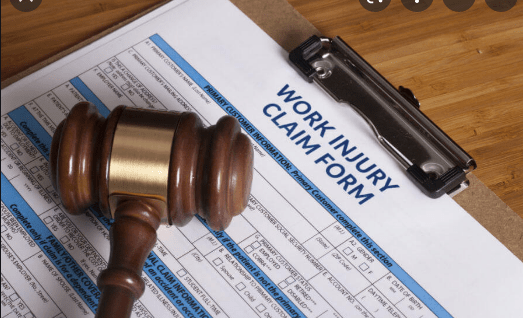A worker’s compensation claim is a formal process used to apply for benefits when you get hurt or sick because of your job. This section will describe the steps involved in filing a worker’s compensation claim and the documents typically required by an employer or insurance company during this process.
Hiring Younce, Vtipil, Baznik & Banks, P.A. – injury lawyers can speed up the process and make it hassle-free. But if you want to file a worker’s compensation claim on your own, you can do it with considerable knowledge.
What if I do not want to file a worker’s compensation claim?
Even if you do not want to file a worker’s compensation claim, we recommend that you keep the following documents:
(1) Any records of your job-related injury or illness;
(2) Copies of all medical reports and bills; and
(3) Pay stubs showing loss of income. You may want to speak with a lawyer first before you take any further steps.
What happens after I file a worker’s compensation claim?
Once your claim is received, an employer or insurance company will probably contact you to schedule a meeting within two weeks. In some cases, the employer or insurance company may try to resolve your claim as soon as possible after you file your claim.
If the claim is not resolved within a few months, an administrative law judge will hold a formal hearing to determine if you get benefits and for how long.
What documents are required while filing a worker’s compensation claim?
To help employers or insurance companies understand why you are hurt or sick, you may be required to provide the following documents when filing a worker’s compensation claim.
- Your most recent pay stubs;
- A copy of your company employee handbook;
- Any past reports regarding job injuries, accidents, or illnesses at work;
- Names and phone numbers for all of your coworkers who have first-hand information about how you were hurt or sick;
- A copy of your accident report if you had an on-the-job injury, accident, or illness that was reported to the police. If there is any question about whether this report should be provided to the insurance company or employer, consult with a lawyer BEFORE providing this report to the insurance company or employer;
- A copy of any witness statements from coworkers, family members, or other witnesses who can provide information about how you were hurt or sick. If there is any question about whether these documents should be provided to an employer or insurance company, consult with a lawyer BEFORE providing these documents.
When does it make sense to hire a personal injury lawyer?
It typically makes sense to hire a Raleigh personal injury lawyers if you have been seriously injured and the insurance company has denied offering you a fair settlement amount. In these situations, an experienced personal injury attorney can negotiate with the insurance company on your behalf to help you receive the compensation that you deserve.
What are the steps of filing a worker’s compensation claim without an attorney?
The steps for filing a worker’s compensation claim are as follows:
Step #1:
Make sure that your injury or illness is work-related. If it is, file an accident report with your employer. This report should be filled out by someone at your company who has witnessed the incident or investigated how you were injured or got sick.
Step #2:
File a worker’s compensation claim. You can either go to your employer or contact the insurance company that insures your employer. Suppose you are filing a claim against an employee of another company.
In that case, that individual should be listed on the accident report as the party causing the injury even if it was, for instance, their equipment that was defective.
Step #3:
The insurance company or employer will contact you within two weeks to schedule a meeting where they may try to resolve your claim as soon as possible after you file the worker’s compensation claim.
If the claim is not resolved within a few months, an administrative law judge will hold a formal hearing to determine if you get benefits and for how long.
What are the four types of workers’ compensation benefits?
There are four types of workers compensation benefits:
- Medical Coverage:
The first type of benefit is medical coverage, which will pay for doctors and hospital visits. Workers’ compensation also covers any prescription medication you may need to treat your injury or illness.
- Wage benefits:
The second type of benefit is wage replacement. It provides a percentage of your lost wages while you are recovering from your work-related injury or illness. Wage benefits usually replace about two-thirds of your average weekly wage, up to the maximum set by law.
In most cases, this means that you can receive 60% to 66% of the income you would have made had you not been injured.
- Vocational rehabilitation:
The third type of benefit is vocational rehabilitation. It provides the training and tools you need to return to work and become self-sufficient once again. Vocational rehabilitation services may be provided directly by your state’s worker’s compensation agency or through an employer, college, or other organization.
You can receive vocational rehabilitation benefits only if it has been determined that you cannot return to your regular job and that returning to a modified or different light-duty job will not help you recover.
- Death Benefits
The fourth type of benefit is death benefits, payable to your dependents if you die due to a work injury or illness.
What happens if my employer or the insurance company does not contact me?
If your employer or insurance company fails to contact you within two weeks of receiving the worker’s compensation claim, call them back and ask what is going on with your claim. Make sure that they have received your paperwork.
What happens during a worker’s compensation meeting?
At this meeting, an employer or insurance company will ask you to tell them everything that happened before, during, and after the accident. They may also ask for information about how your accident has affected your life. It would help if you were prepared to explain in detail how you were hurt or sick because of your job.
What happens if I change my story at a worker’s compensation meeting?
If you do not tell the full story to an employer or insurance company, they may dismiss your claim, and you will not be able to file another one in the future.
What happens after a worker’s compensation meeting?
After filing your claim, your employer or insurance company will probably send you a letter telling you what information is still needed from you.
What happens after I submit all of the requested documents?
Once an employer or insurance company has reviewed your submitted documents and is satisfied that they have enough information to decide your claim, they may schedule another meeting to discuss your claim.
At the meeting, an employer or insurance company will probably ask you to bring in a list of all health care providers that have treated you for your injury or illness, as well as copies of all medical reports from those providers.
What happens after I give my employer or insurance company a list of my health care providers?
If your claim is still being denied, you will probably be asked to submit a list of doctors who specialize in treating your type of injury or illness. Your employer or insurance company may also ask for the results from any tests that these doctors have ordered for you.
If your claim has already been approved, an employer or insurance company may ask for your treating doctor’s name and phone number.
After I give my employer or insurance company a list of doctors who specialize in my type of injury or illness, what happens?
If your claim has not been approved, an employer or insurance company will probably schedule another meeting to talk about the results of these tests. This meeting may also include a doctor. The doctor’s medical reports may help an employer or insurance company decide whether you should receive worker’s compensation benefits.
What happens after I submit all of the requested documents?
If your claim is still being denied, an employer or insurance company will probably schedule another meeting to talk about your claim. At this meeting, an employer or insurance company will try to negotiate a settlement for you.
If your claim has already been approved, an employer or insurance company will probably ask you to sign a form saying that you agree with the approval of your claim.
When do I have to go to worker’s compensation meetings?
In some cases, you may be required to go to all employee interviews, meetings, and hearings. However, many times you can choose to have an attorney attend these meetings for you.
What if I miss my worker’s compensation appointment?
If you miss your scheduled appointment with your employer or insurance company without giving them advance notice, they may decide that you are not interested in resolving the claim.
If this happens, you will likely be required to attend future meetings with your employer or insurance company, which may include an attorney.
What happens after I sign the agreement?
After you sign the worker’s compensation agreement, your claim will probably be closed, and all benefits (including medical treatment) should already have begun. If you are still receiving medical treatment at this time, your employer or insurance company may agree to continue paying for that medical treatment until it is complete.
What if I get injured at work after my claim has been approved?
If you get injured on the job while your claim is already approved, contact your worker’s compensation attorney immediately. If you wait too long and don’t report this injury within 30 days, you could lose any benefits included in your worker’s compensation claim.
How long does a work injury claim take?
The process of resolving a work injury claim can vary greatly depending on the complexity and severity of your injuries. In general, you should receive notice about whether your employer or insurance company will approve your claim within 30 days after you submit all requested documents.
The entire process could take several months or even years if there are complications with medical reports, tests, or the severity of your injuries.
What happens if I lose my injury claim?
If you lose your injury claim (and the jury rules against you), the court could order you to pay certain costs and fees associated with the defendant’s legal representation. These costs and fees will be subtracted from any money eventually awarded in your favor if this happens. Depending on how long it takes for a judge or jury to decide, this could result in significant delays.
How do I find an experienced personal injury lawyer?
When looking for an experienced personal injury lawyer, similar to this attorney here, the best place to start is by asking family and friends for referrals. You can also check out online directories like Avvo, which allow you to read reviews about lawyers’ past cases and experiences.
How much does a personal injury lawyer cost?
Lawyers generally charge an hourly fee for their services. If your case is successful, you may be required to pay them out-of-pocket or through the money that you win in court. The fees charged by lawyers are typically based on the time it would take to complete certain tasks rather than the outcome of your case.
How do I know if my injury claim is legitimate?
There are certain guidelines for how much a person can recover damages through a worker’s compensation claim. If your injuries don’t meet these guidelines, your employer or insurance company may dispute your claim. Usually, the only way to know if your claim is legitimate is to submit all required documents and then wait for a response.
Conclusion
If you ever get injured on the job, your attorney can help you get all of the benefits you need after being hurt. If you think that your injury claim is legitimate, it’s important to show your employer or insurance company all the requested documents.
Contact a worker’s compensation attorney today if you’re unsure what kind of documents they might be requesting.













